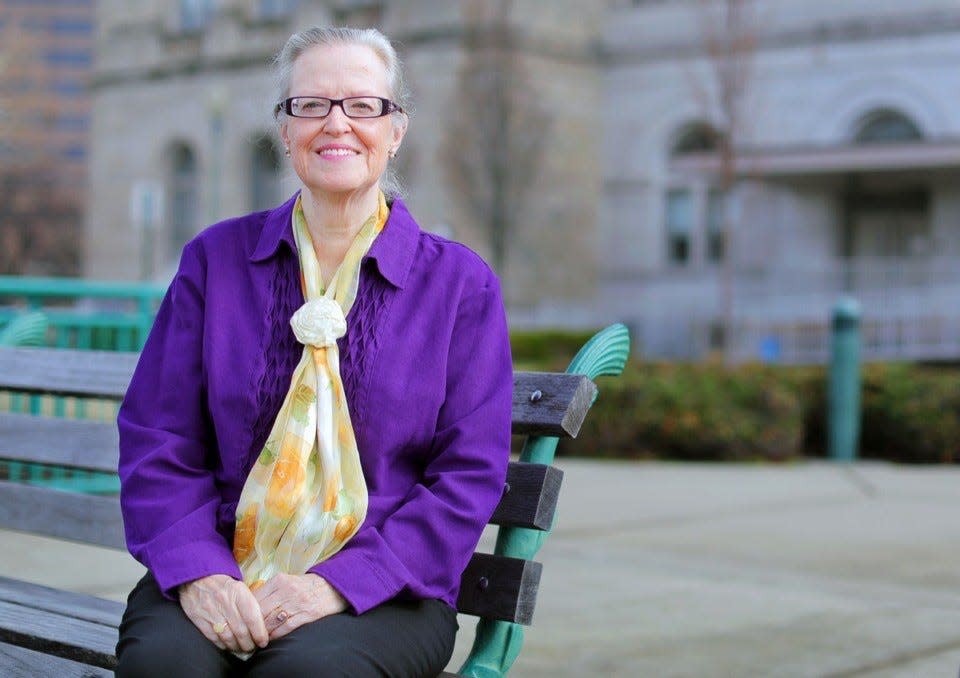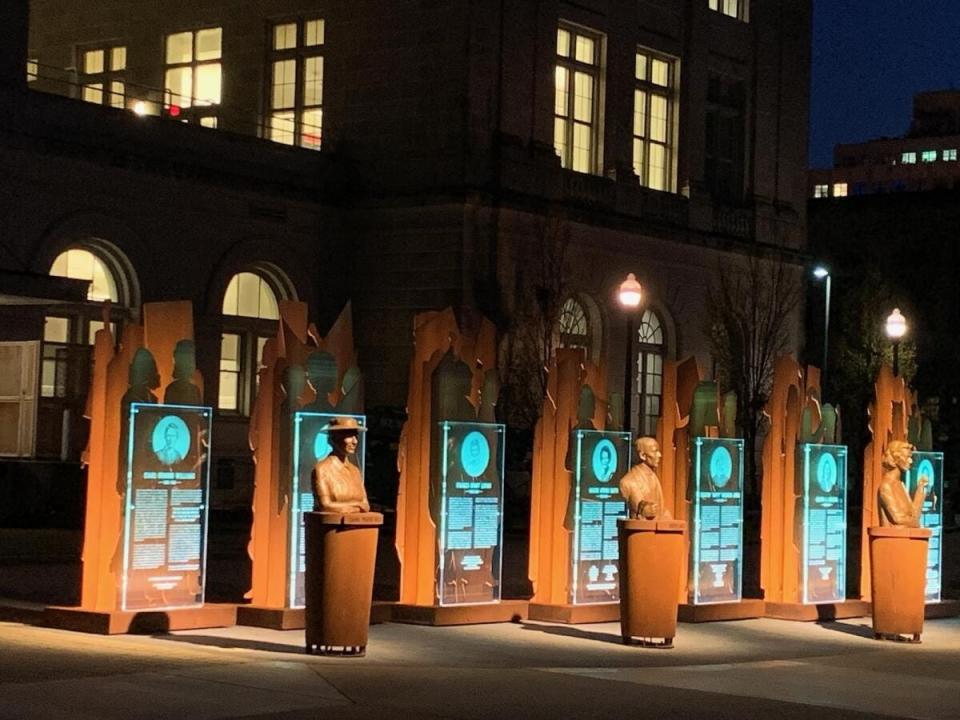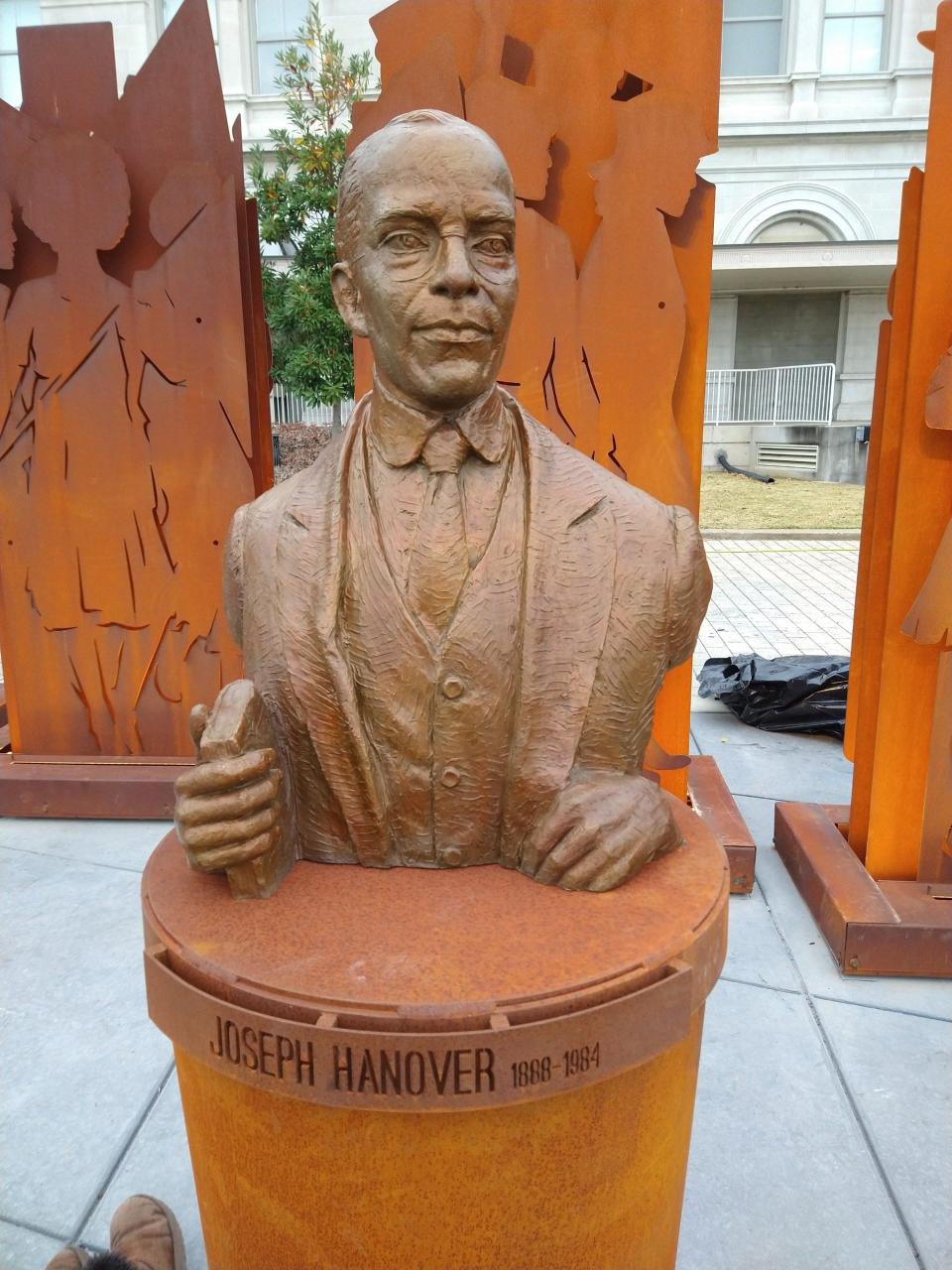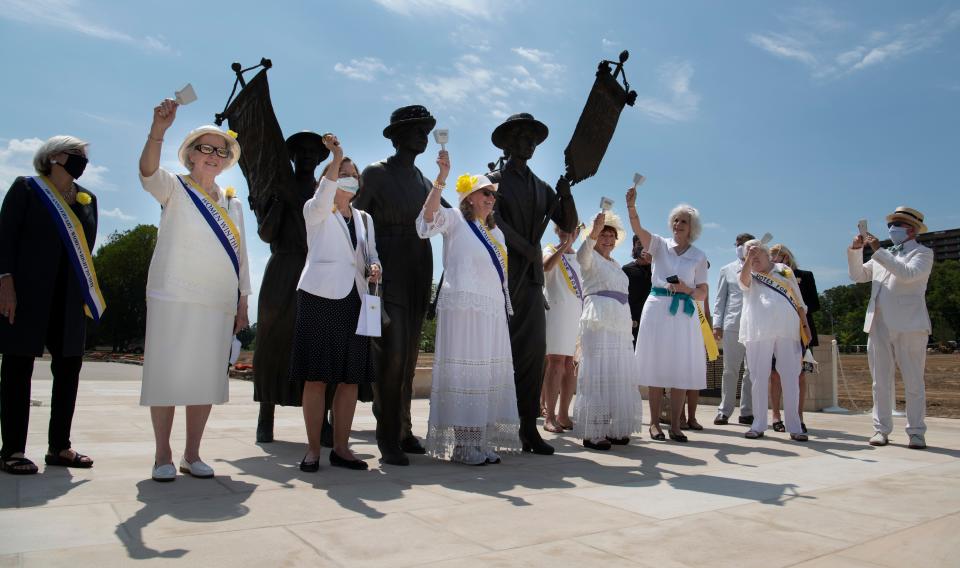'Why can't Mother vote?' Two Tennesseans vital to passage of 19th Amendment | Opinion
On Aug. 18, 1920, the Tennessee House of Representatives voted to ratify the 19th Amendment. Since Tennessee was the last state that could possibly ratify, this action enshrined the right to vote for women in the U.S. Constitution.
The House concurred with the state Senate, which had voted 25-4 on Aug. 13 for ratification. The 72-year-long nonviolent struggle culminated with victory in Tennessee thanks to the unceasing efforts of suffragists across the state.
Prior to February 1998, there was nothing inside the state capitol building that depicted Tennessee’s important role in this nonviolent revolution. Then-state Sen. Steve Cohen, now congressman for the 9th District, sought to rectify that. He understood the importance of public art and worked with the Tennessee Arts Commission to hold a blind competition. Noted artist/sculptor Alan LeQuire of Nashville won and his bas relief sculpture was unveiled between the House and Senate chambers.

It is the only recognition in the state capitol that celebrates our state’s greatest gift to this country — the enfranchisement of nearly 27 million American women.
I have been part of the effort to install suffragist public art across the state. So far, we have two in Nashville, two in Knoxville, one in Jackson, one in Clarksville and the most recent addition, the Memphis Suffrage Monument, “Equality Trailblazers.”
Two individuals featured on the Memphis monument were particularly important in the ratification effort: Rep. Joseph Hanover and Charl Ormond Williams. It is unlikely the 19th Amendment would have passed without their efforts.
Charl Ormond Williams
Williams, a nationally known educator, was appointed as superintendent of Shelby County Schools in 1914. She was elected vice chairman of the Democratic National Committee in June 1920. She became the first woman to hold that high position. Gov. A.H. Roberts was so impressed with her skills as a negotiator that he asked her to lead the final ratification effort and bring opposing factions together. She had not been directly involved in the suffrage struggle prior to that.

Roberts had telephoned Williams privately asking if he might arrange some way for her to apply her much-admired administrative talents to the fragmented chaos that was occurring in the ratification efforts. Since the DNC had asked her to do just that, she readily agreed. She pledged to spend “every hour of every day” working for passage of the ratification resolution. She and Hanover worked closely with Carrie Chapman Catt to bring the amendment across the finish line.
Hear more Tennessee voices: Get the weekly opinion newsletter for insightful and thought-provoking columns.

Your state. Your stories. Support more reporting like this.
A subscription gives you unlimited access to stories across Tennessee that make a difference in your life and the lives of those around you. Click here to become a subscriber.
After ratification, she went on to a distinguished career in Washington, D.C., and was cited as one of 12 women competent to hold the presidency of the United States.
Rep. Joseph Hanover
Hanover, born in 1889 in Pultusk, Poland, was the third son of Wolfe and Esther Hanover, who were Orthodox Jews. The czar of Russia controlled Poland late in the 19th century and relentlessly persecuted the Jewish people. In 1893, he confiscated all the property of the Hanover family. The Hanovers escaped Poland and found a new home in Binghampton, a small immigrant-based community just east of Memphis.

Hanover was only 5 years old when he found his new home in America, and he loved it.
'Why can't Mother vote?'
Joe’s parents encouraged him and his brothers to read American documents, including the Declaration of Independence and the Constitution. Young Joe did, and as he did so, his love for his new country grew. But Joe did have a question for his parents. “Why can’t Mother vote?” he asked.
His parents had both been naturalized as citizens in 1901, but only his father had what Joe felt was the most cherished right of an American: the right to vote.
In 1918, he ran for the Tennessee legislature as an Independent, winning an upset victory. He served only one term, but during that brief time, he never forgot the question he had asked his parents when he was just a boy: Why can’t Mother vote?

He became the leading voice in the Tennessee legislature for woman suffrage. In 1919, he led the successful fight for partial suffrage, securing for his mother and the women of Tennessee the right to vote in some but not all elections. It was a first step, but his work was not finished.
In August 1920, he returned to Nashville for the special session to consider the 19th Amendment’s ratification. To his surprise, Catt, president of the National American Woman Suffrage Association, asked him to lead the legislative fight. He agreed to do so. It almost cost him his life. He was assaulted and beaten in the Hermitage Hotel elevator by two suffrage opponents, one calling him a “kike” and the other calling him a “Bolshevik.”
But Joe courageously pushed on for the passage of the 19th Amendment against the fierce opposition of such powerful forces as Speaker Seth Walker, the L&N Railroad and even Jack Daniel’s.
On Aug. 17, 1920, the final debate on the amendment took place in the Tennessee House.
On Aug. 18, the historic vote on the ratification of the 19th Amendment took place. Hanover knew he was two votes short of passage. Walker tried to kill it with a motion to table. Hanover and Banks Turner defeated the motion not once but twice.
And then, in the final vote, ratification passed by one vote thanks to the leadership of Hanover and surprise votes in favor by Turner and Harry Burn.
Hanover returned to Memphis. He never ran for public office again. Years later he reflected on how he had ultimately found the answer to the question he posed to his parents as a young boy: Why can’t Mother vote?
“I leaned as a lawyer and legislator,” he said, “that democracy is a work in progress, and in the summer of 1920, we had to address unfinished business of that democracy.”
On Aug. 24, the governor signed, sealed and sent by special-delivery registered mail the certificate of Tennessee's ratification to Secretary of State Bainbridge Colby in Washington, D.C. Colby signed the final papers on Aug. 26 and votes for women became the law of the land.
Paula F. Casey is co-founder of the TN Woman Suffrage Heritage Trail (https://tnwomansuffrageheritagetrail.com) and state coordinator of the National Votes for Women Trail. She helped edit "Why Can’t Mother Vote? Joseph Hanover and the Unfinished Business of Democracy" by Bill Haltom.
This article originally appeared on Nashville Tennessean: Two Tennesseans were vital to the passage of the 19th Amendment

